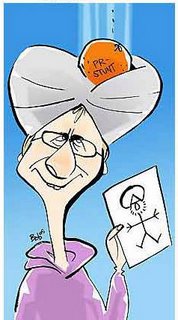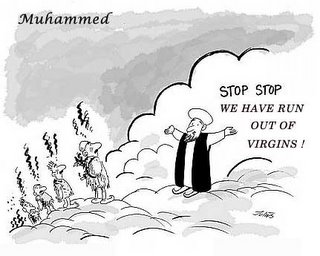The following is an exclusive NewsMax interview with actor Gary Sinise. James Hirsen reports from Hollywood.
"Everybody needs a good day in a war zone." – Actor Gary Sinise
The U.S. media present a "completely opposite" view of what is really happening with American troops in Iraq, highlighting the negative and ignoring the positive, Emmy Award-winning actor Gary Sinise tells NewsMax.
With so many in Hollywood knocking American efforts in the Middle East, Sinise – star of TV's "CSI: NY" – openly shows his support through actions as well as words.
Sinise has entertained troops in Iraq and is a co-founder – along with "Seabiscuit" author Laura Hillenbrand – of Operation Iraqi Children, a program that enables ordinary Americans to provide boys and girls in Iraq with school supply kits distributed by our men and women in uniform.
The actor, who played disabled Vietnam veteran Lieutenant Dan in "Forrest Gump," is also a spokesman for the U.S. Disabled Veterans Life Memorial Foundation. He is also the co-founder of the Lt. Dan Band, a musical ensemble that entertains troops via USO tours. (Sinise plays a mean bass guitar.)
Sinise recently spoke exclusively with NewsMax's James Hirsen, revealing what prompted him to get involved with American troops and veterans, how Iraqis really feel about the U.S. presence in Iraq - and more.
HIRSEN: Did the events of 9/11 change your view of the world?
SINISE: Yes, I think so. It definitely woke me up. I started doing a lot more looking into what was going on. I wanted to know why this happened. I knew that our military was going to start getting fairly active, and I wanted to do something, I wanted to help out. I felt, like a lot of people, very vulnerable in this country, having felt for so many years so secure. And all of a sudden to be attacked on our shores like that was a real slap in the face and a wake-up. I just felt like, well, we're a country at war now, and I wanted to be able to do something to help.
HIRSEN: You use the term "wake-up" to describe the change in attitude that 9/11 created. Why do you think 9/11 didn't change so many other folks in the media and in Hollywood?
SINISE: Well, I don't know anybody who wasn't affected by it; certainly at the time everyone was affected by it. I think there are some people that got more active in terms of volunteerism and feeling like life is much more precious than they had ever thought before and having a feeling of wanting to make the most out of it. That's what happened to me. I'm sure it happened to other people as well. And I'm sure there are many people who went back to sleep, or "it's business as usual," and that's unfortunate because I think the world changed that day. We've all heard that said. I just really believe it.
HIRSEN: What is your view of the way the media are portraying the military effort in Iraq and Afghanistan?
SINISE: It's interesting. I did an interview recently, and after the interview was over I got into a conversation with the journalist who was interviewing me who had been to Iraq as an embedded reporter; you know, fairly supportive of the media. I got into questioning why there seemed to be such an imbalance of reporting coming out of Iraq, and not just an imbalance but an omission or a confusion as to what is really going on and what is the whole truth of what is happening in Iraq, because I get a lot of other types of reports from Iraq that I never get from the media.
I'm in touch with dozens of military service members over there who are working quite diligently on their mission, accomplishing positive things, making progress, and who have a dedication and belief that what they are doing is helping, and therefore their morale is high. Yet in so many media reports we get a completely opposite view of what's happening with our military service members, that they are demoralized or broken or their morale is low and whatnot.
Granted, there probably are service members over there who don't have as high morale as somebody else might. There are a lot of people over there, and they're not going to all feel the same thing. But there's an overwhelming sense from a lot of the people that I deal with who are working cooperatively with the Iraqis on a day-to-day basis. They are making progress, and they're accomplishing positive things. Therefore they feel good about their mission, and some people who have gone would go back again.
I've talked to several people who were back here, who said, "Well, if they want me to go back, I'll go back." That doesn't sound like somebody who's angry about having gone to war, and what they did. ... A lot of people make general statements, big, sweeping, general statements. "The morale is down." That's a big, sweeping, general statement that lumps 150,000 people all into the same boat. "The Army is broken" or "The mission is not going well."
Well, there are day-to-day missions all over that country that are being accomplished by our service members, so it's not one single thing going on. There are people all over the country working with all kinds of things and doing all sorts of projects, combat related and civil affairs related, so there are many stories coming out of Iraq.
HIRSEN: What was it that you told the journalist?
SINISE: My point to this journalist [was] that I was disturbed at the media's willingness ... to go after the military regarding the Abu Ghraib prison scandal. It seemed like they could not put enough of those pictures on television enough times. We saw dozens and dozens and dozens of pictures daily, for two, three weeks, [showing] the lack of integrity of our military.
He [the journalist] said to me: "You know what, I don't care. I think we should put those pictures on every day and all the time, and I have no problem with that."
I said: "I can't disagree with you that it was a horrible misstep by a bunch of dufusses in our military, about 15 of them. But on the other hand I would say, where is the other side of the story? Why, if you're going to be so aggressive with depicting American troops in a negative manner, why not be just as aggressive to show the heroism of our service members?"
I brought up dozens of examples. There's a woman, a major, who is like a superwoman over there, helping kids and delivering kerosene lamps and pulling Iraqis out from under trucks and saving people and doing all these things. You never hear about that kind of stuff. Yet it seems like they can't wait to put bad news on.
I said, "You tell me. Why do we see one side of the story and not the other if there are two sides?" He paused, and then he said, "Well, bad news sells" – and that's all he could say.
HIRSEN: The media will respond somewhat flippantly that bad news is a hallmark of human nature. Do you find that response surprising considering this is a time of war?
SINISE: It seems like every day you could get a new piece of information that could throw you a curve. Personally, I believe that we are in a war, and I think there may be a fundamental difference with people that have varying degrees of conviction about who the enemy is, what the enemy's intentions are, whether we are actually in a war or not, who brought the war on, us or them. And there are always differing opinions about that.
Some people might not actually view this as a war. It's not like, the armada is coming; we can see it on the horizon; let's load the guns and defend the coastline. We can't do that anymore. There is an ideology out there that we have identified, that is threatening and requires response. Certainly we know that. But we're not fighting any particular country. We're fighting, basically, al-Qaida in Iraq now, and former Baathists of the Saddam Hussein regime.
There are a lot of people who didn't believe we should go to Iraq in the first place, so they're not going to view it as a war. And if they view it as a war, they view it as an illegal war, and they're not going to support it; therefore, they're not going to support the military members who are fighting it.
Personally, I believe that we are in a war. We are a country that's vulnerable. We saw that on Sept. 11.
There's no question in my mind that, given the opportunity to put a nuke in a suitcase, there are millions of people, not thousands but millions, who would dedicate themselves to detonating that nuke in one of our cities. I have no doubt in my mind. I saw it on Sept. 11. If they could have killed 300,000 instead of 3,000, they would have been all the happier about that. There's no question in my mind that that is a reality and that it has to be; that we will need our service members for many years to come and that we want to support them.
We're going to need these volunteers. That's why I get out there and support them. I believe there is an enemy and that the service members that we have are our defenders.
HIRSEN: You talk to servicemen and women regularly. Have they indicated that they're affected by the coverage of the war by the media?
SINISE: I have had some people mention it in terms of why don't they show any of the positive things that we're doing over here. I had one guy who delivered school supplies. That day they had a huge celebration in the village. It was a very cooperative day for everybody, and that to him was a big story. That was his story for the day. Instead he got back to the base and turned on the news and it was more of the same negative stuff.
It is big news every time bombs go off, and it's big news when our guys get hurt or killed. Those stories deserve to be told. But they [soldiers] might have been killed on a day when they had just accomplished some huge things and helped out a lot of people, and they would, I am sure, like that story to be told as well.
HIRSEN: Part of this is your story. You've co-founded Operation Iraqi Children. You're the national spokesman for the U.S. Disabled Veterans Life Memorial Foundation. You've been involved with veterans for a long time, and people associate you with the military, with your role as Lt. Dan in "Forrest Gump." What was it that prompted your involvement and passion for veterans' causes?
SINISE: Years ago I was involved with a group of Vietnam veterans. I had worked on some theater material, a play where I got very involved with the Vietnam veterans that the play was portraying, and that was kind of a wake-up as well.
HIRSEN: Operation Iraqi Children (http://www.operationiraqichildren.org/) is such a wonderful concept. We have many readers who would like to show their support for the military. Why do you think that this is a good way for people to do that?
SINISE: Well, Jim, I've tried to, I've been very concerned and tried to keep Operation Iraqi Children as neutral a program as possible. I don't really go out and talk about my political views. I don't do a lot of criticizing of things, banging, slamming people, because Operation Iraqi Children, no matter what my political views are or anything like that, that's not what this program is.
I believe that these kids are the future of Iraq, and so many in that part of the world have been raised to think bad things about Americans or bad things about Western culture.
I'm actually in touch with Iraqis over there who are totally supportive and totally behind the United States being there and the coalition being there, and completely appreciative of the possibilities that they have now because of what has happened in the last two or three years.





















